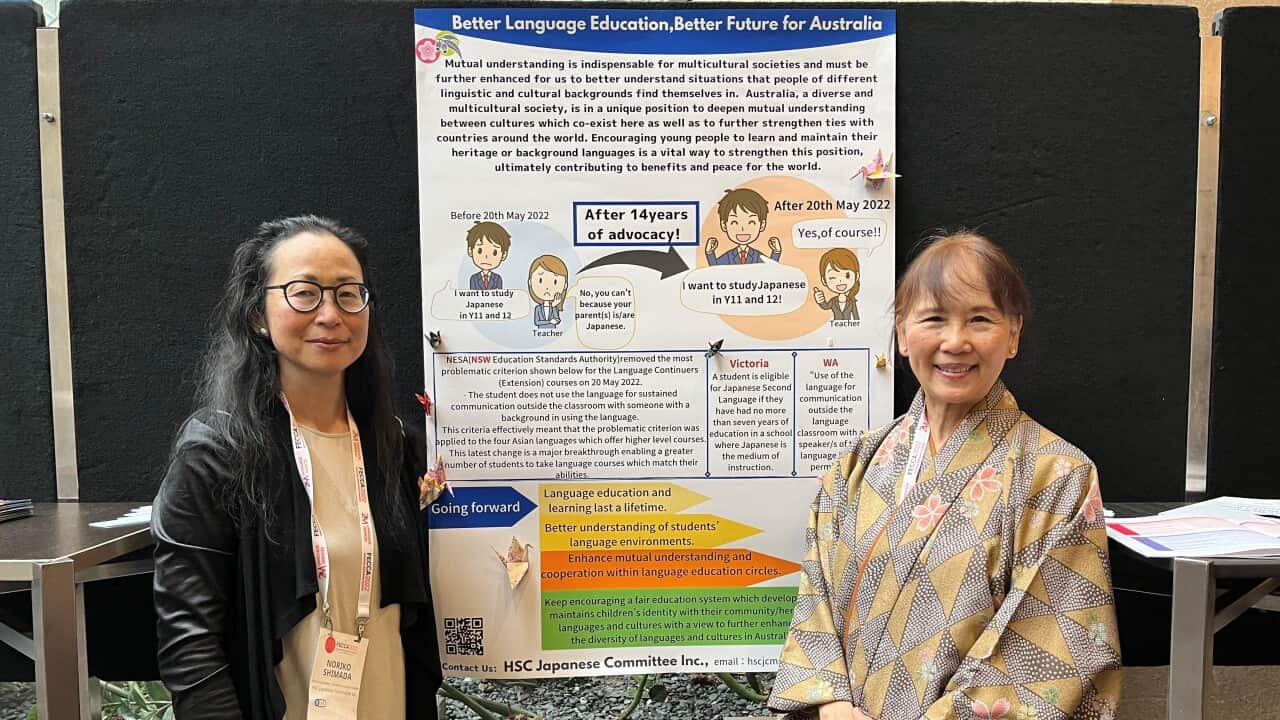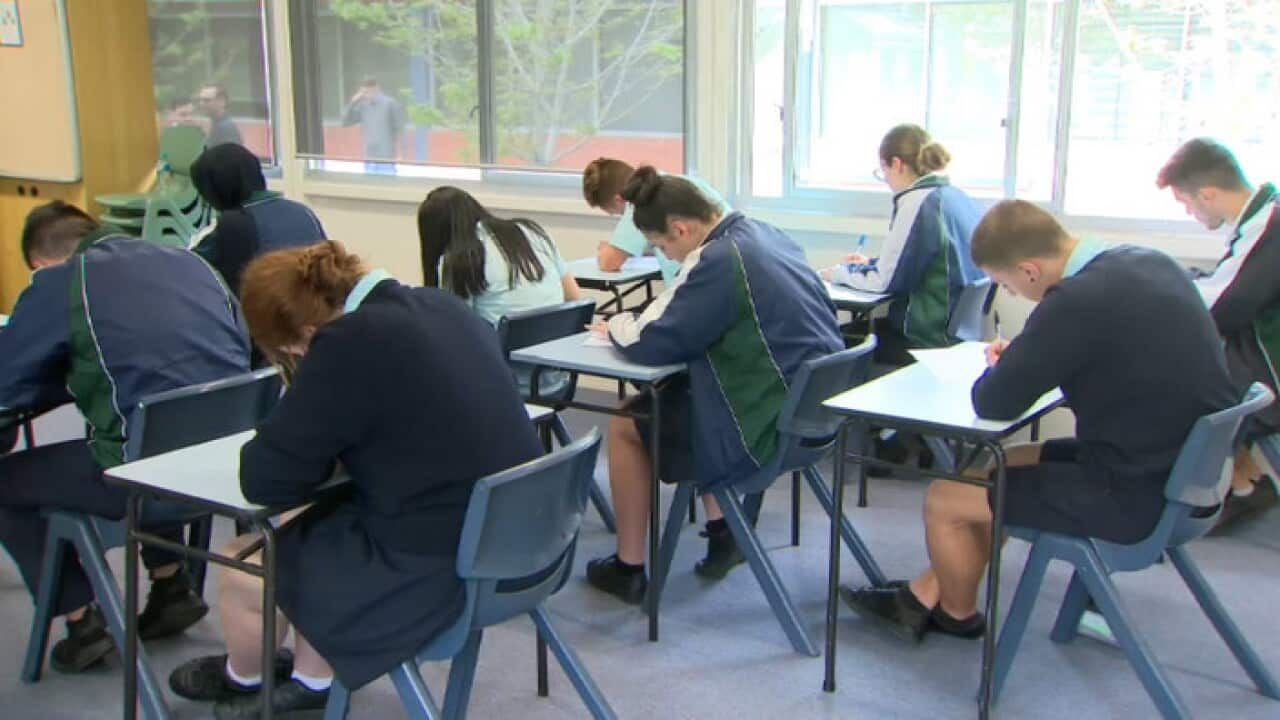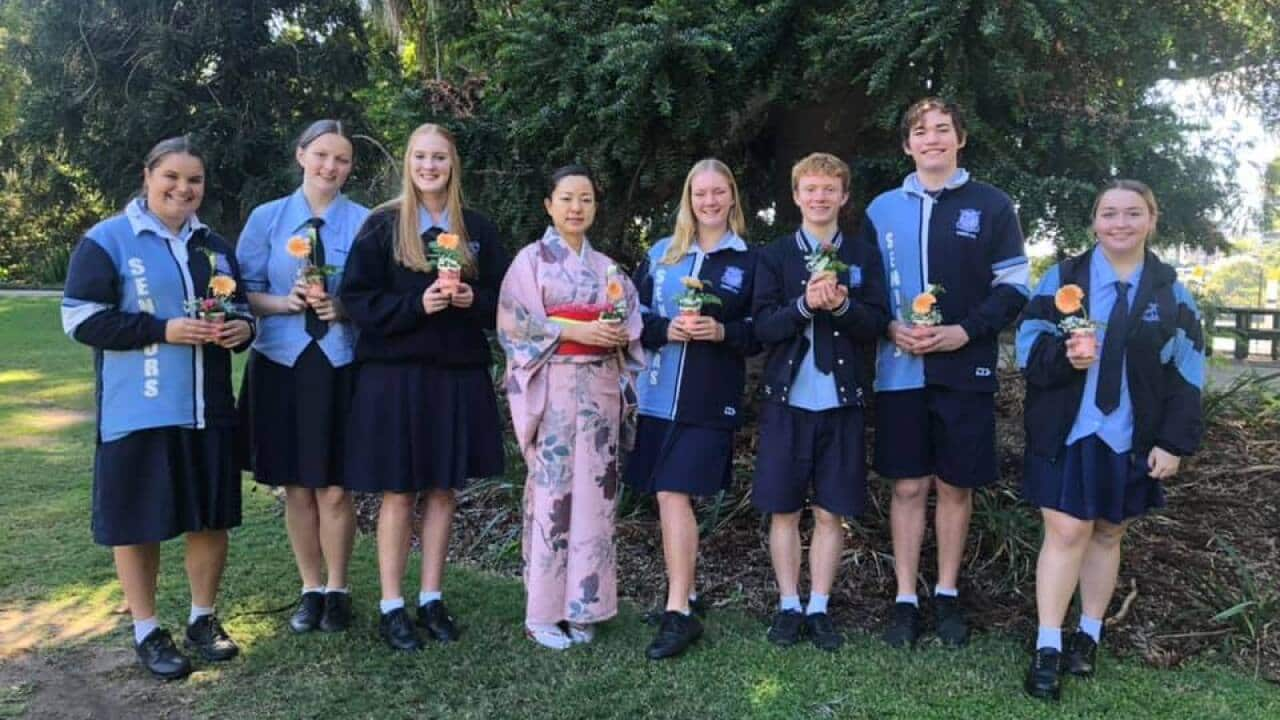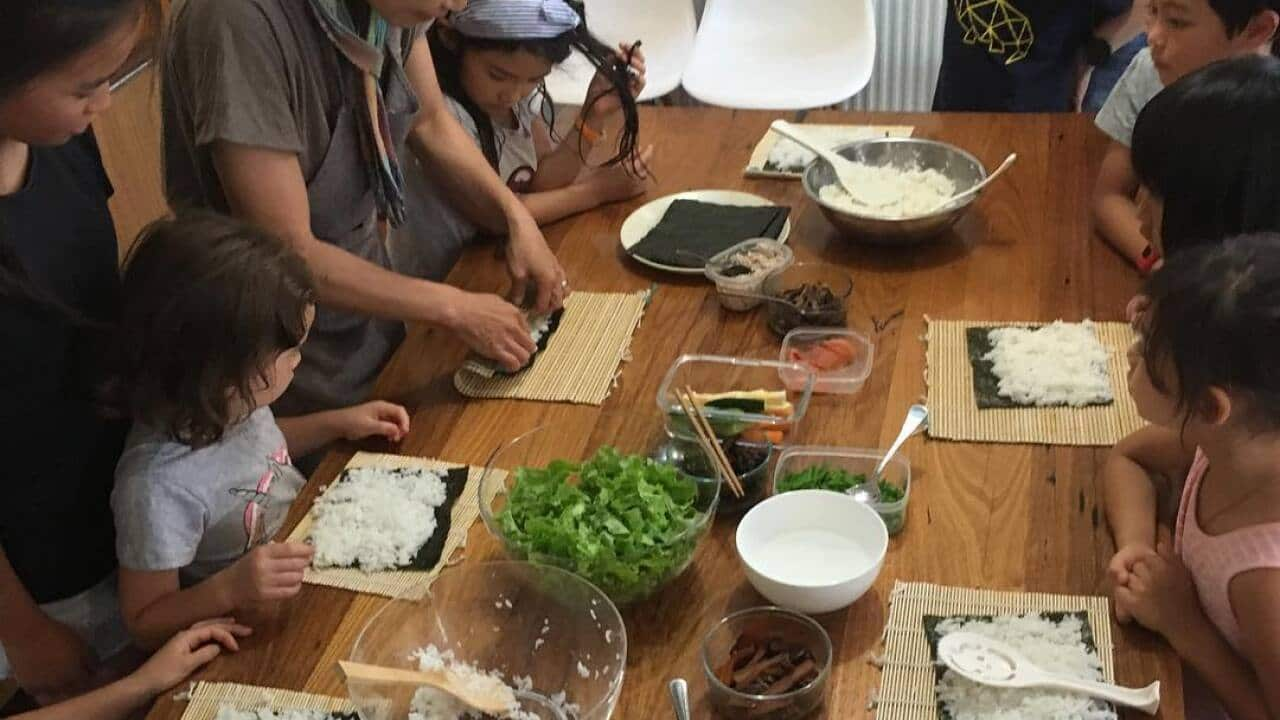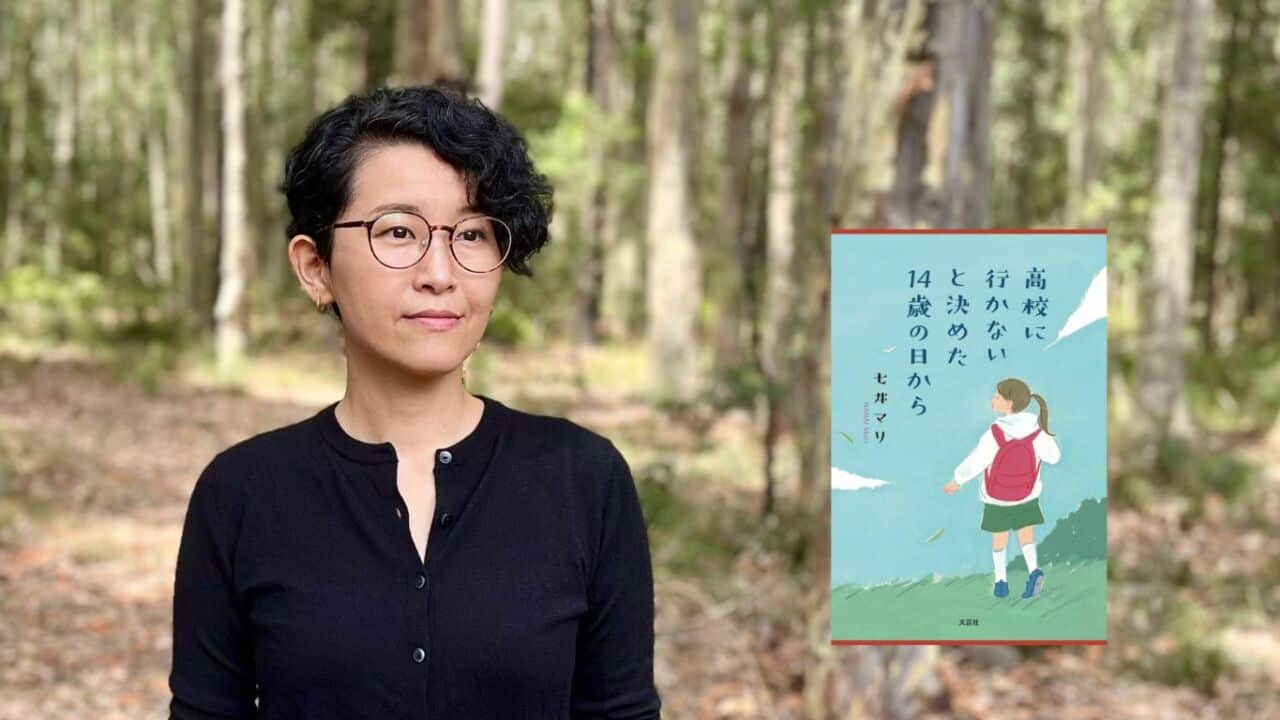Key Points
- The NSW Education Standards Authority (NESA) recently changed the eligibility criteria placed on four out of the 34 languages offered in the HSC
- The HSC Japanese Committee Inc. had expressed concern over the criteria for many years
- Encouraging young people to learn and maintain their heritage language will be Australia's asset for the future, say advocates
Noriko Shimada and Noriko Kojiro have both been members of the HSC Japanese Committee Inc. since its inception in 2007.
Although their own children graduated from high school many years ago, Ms Shimada and Ms Kojiro continued their fight for students’ rights to learn their heritage language.
On 20 May 2022 they finally got their wish when the NSW Education Standards Authority (NESA) announced changes to the eligibility criteria placed on four of the 34 languages offered in the HSC - Japanese, Chinese, Korean and Indonesian.
HSC language courses are offered in various levels - beginners, continuers, in context, and extension - depending on a student's abilities.
However, prior to 20 May, students wishing to study a continuers course in the four Asian languages had to satisfy an extra eligibility criterion that the "student does not use the language for sustained communication outside the classroom with someone with a background in using the language".
For years the HSC Japanese Committee Inc. had called this ruling "problematic".
According to Ms Shimada and Ms Kojiro, many students had been deemed ineligible to sit the Japanese continuers course on the "narrow" assumption that if their parent or parents were Japanese, their language proficiency must be beyond the level of the course.
This meant many students could not take up a course that best matched their ability, she says.
The not-for-profit-organisation was formed in 2007 to express the concerns of the Japanese community and to advocate for change over what they called an "unfair and discriminative criteria".
According to Ms Shimada, former president of the committee, the explanation they had received from NESA about the criteria being placed specifically on the four Asian languages, and not others, was that Japanese, Chinese, Korean and Indonesian were considered to "take more time to acquire" than other secondary languages.
However, Ms Kojiro says acquiring a language "to a working level" takes time for all students, including those of Japanese background living in Australia. "To ignore this common fact is wrong," she says.
The criteria robbed many of the opportunity to learn and maintain their heritage or background language, she argues.

Ms Kojiro, who works as a simultaneous interpreter at the diplomatic level, knows all too well how important language is in deepening mutual understanding across multicultural societies.
"We must look at the bigger picture," she says, pointing out that supporting young students to develop proficiency in more than one language will be an asset to Australia's future.
Ms Shimada hopes that the Australian government will maintain their stance on the importance of language, and "further facilitate it".
"I do hope that they maintain this, even if the parties change in the future."
For Ms Shimada and Ms Kojiro's full interview in Japanese, click below:
Listen to SBS Japanese Radio on Tue, Thu and Sat from 10pm(AEST)
You can listen to our past stories from our podcast
And don't forget to visit SBS Japanese Facebook page!
